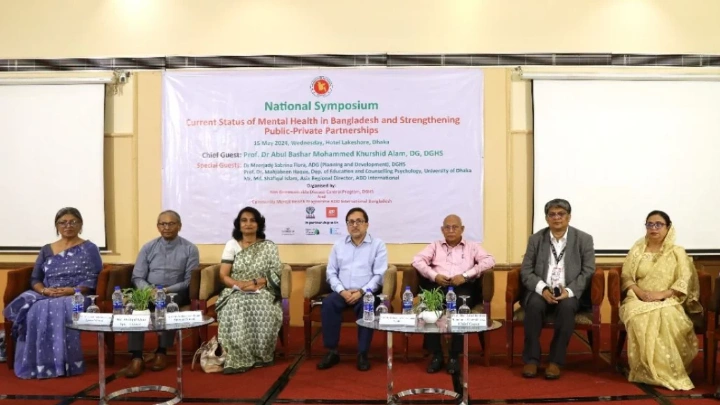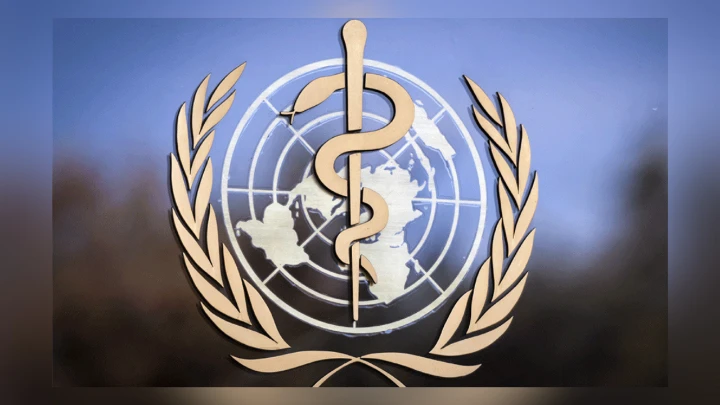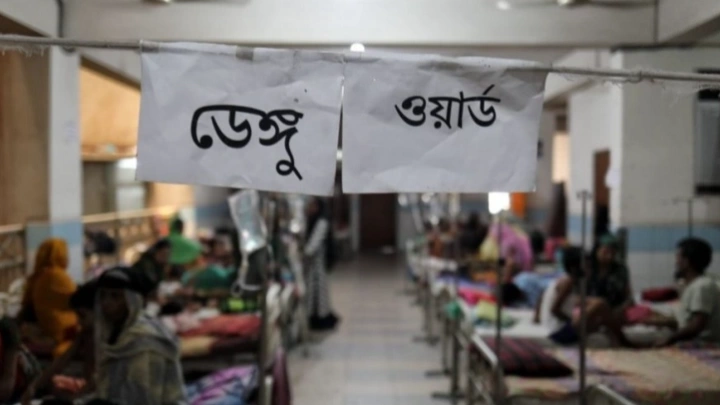Experts: Mental health cannot be ensured without multi-sectoral involvement
DhakaTribune || Shining BD
Health experts have said that strengthening the quality of mental health services and initiatives, including door-to-door delivery, requires increased public-private partnerships.
They also noted that since most mental illnesses stem from social determinants, the health services and awareness messages provided by the Department of Health are insufficient. Therefore, preventing mental illness requires multisectoral action, and there is room for collaboration among public, private, and other entities concerned.
They made these remarks at a National Symposium titled "Current Status of Mental Health in Bangladesh and Strengthening Public-Private Partnerships." The Non-Communicable Disease Control Program (NCDC), DGHS, and the Community Mental Health Program, ADD International, organized this event at a hotel in Gulshan, Dhaka on Wednesday.
Two presentations at the Symposium highlighted approaches and ongoing initiatives to improve mental health systems and discussed how community-based approaches can provide primary care and raise awareness about mental health issues in areas lacking adequate mental health support and professional services.
The presentations also addressed the global mental health situation, the current situation in Bangladesh, the measures and challenges faced by the government in improving the mental health system, and the potential for public-private coordination and joint ventures. The panelists discussed ways to bridge gaps in mental health services by reducing stigma, increasing community-level awareness, and providing services at both grassroots and central levels.
At the event, Dr Helal Uddin Ahmed, Associate Professor in the Department of Child and Adolescent Mental Health at the National Institute of Mental Health and Hospital (NIMH), delivered a presentation on the current situation, challenges, and future directions for mental health services in the public sector.
Another keynote presenter, Abdullah Al Harun, Project Manager of the Community-based Mental Health Project at ADD International Bangladesh, discussed community mental health and the role of non-governmental service providers in promoting mental health.
Ghulam Faruq Hamim, Bangladesh Country Program Team Lead at ADD International, remarked that the NCDC is the foremost health authority in the world. He noted that the Government of Bangladesh has begun to respond positively to the demand for health services, working with many health professionals to develop a new system of health services for people with disabilities. This scheme aims to provide health services in districts and sub-districts to people with disabilities and children under the age of 10 who currently lack access to mental health services.
Dr Meerjady Sabrina Flora, ADG (Planning and Development) at the Directorate General of Health Services, said that there is a lack of research in the health sector, and efforts are needed to increase it. She emphasized that identifying and highlighting the problems in the mental health sector is crucial to ensure services are provided throughout Bangladesh on a priority basis. Recently, research in the health sector has increasingly focused on mental health.
She also mentioned that the government has taken several steps to improve mental health services. For instance, steps are being taken to convert Pabna Mental Hospital into an institute, with plans to increase its bed capacity from 500 to 1000 and recruit more doctors and support staff.
According to a 2018-19 survey by the National Institute of Mental Health, NCDC, and the World Health Organization, 18.7% of people in Bangladesh suffer from various mental disorders, with 12.5% being girls and 18.8% boys. The stigma surrounding mental health leads many to avoid seeking adequate services, and gender-based violence contributes to psychological problems in young women, which often worsen due to a lack of services.
Prof Md Robed Amin, Line Director at NCDC, DGHS, highlighted the shortage of manpower in mental health care in Bangladesh. Currently, they are working with 300 specialists and 500 psychologists. He suggested that training regular doctors, nurses, and staff could improve service delivery across the country.
Prof Abul Bashar Mohammed Khurshid Alam, Director General of the Directorate General of Health Services, discussed the health sector's operational plan, which they are working to complete. From July, a sector program will begin, and a separate operation plan for mental health is being planned for the next five months.
He added that studies show medication is sometimes necessary in mental health treatment, but counseling is more critical, requiring patience and ample time.
Also present at the event were Prof Mahjabeen Haque from the Department of Educational and Counselling Psychology, University of Dhaka; Md Shafiqul Islam, Asia Regional Director, ADD International; Shahanur Hossain, Chairman, Department of Clinical Psychology, University of Dhaka; Nasrin Jahan, Executive Director, Disabled Child Foundation (DCF); Prof Kamal Uddin Ahmed Chowdhury, Department of Clinical Psychology and Program Director, NPU, University of Dhaka; and Prof Avra Das Bhowmik, Director, National Institute of Mental Health and Hospital (NIMH).
The program was moderated by Monira Rahman, Founder and Executive Director of Innovation for Wellbeing Foundation (IWF).
Shining BD






















